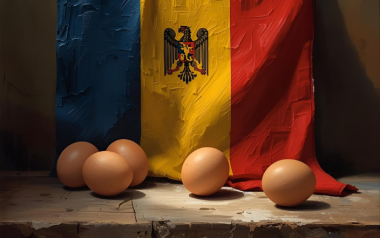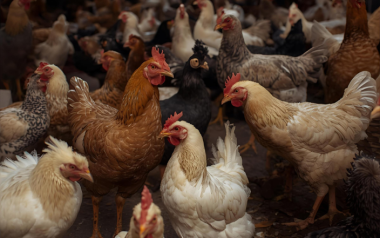Sources: Available upon request.
22 Oct 2024
Moldova begins exporting poultry to the European Union
In a significant milestone for Moldova’s agricultural sector, the country has recently been granted the right to export poultry products to the European Union (EU). This development marks a major step forward in Moldova’s efforts to integrate more closely with European markets and enhance its economic prospects.
In a significant milestone for Moldova’s agricultural sector, the country has recently been granted the right to export poultry products to the European Union (EU). This development marks a major step forward in Moldova’s efforts to integrate more closely with European markets and enhance its economic prospects.
Background and approval
The journey towards this achievement began with Moldova’s persistent efforts to align its food safety and veterinary standards with those of the EU. The European Commission’s decision to grant Moldova the status to export processed poultry meat and table eggs came after rigorous assessments and audits conducted by the National Food Safety Agency (ANSA) of Moldova. These evaluations ensured that Moldovan poultry products met the stringent sanitary and phytosanitary standards required by the EU.
Economic implications
The approval to export poultry to the EU is expected to have a positive impact on Moldova’s economy. Prime Minister Dorin Recean highlighted the significance of this development, noting that it opens up new opportunities for Moldovan exporters and contributes to job creation within the country. The ability to access one of the largest and most lucrative markets in the world is a testament to the hard work and dedication of Moldovan institutions and businesses.
Expansion of export capabilities
Initially, Moldova was granted the right to export processed poultry meat and eggs. However, in a subsequent development, the country also obtained the authorization to export fresh and frozen poultry meat to the EU. This expansion of export capabilities is a clear indication of Moldova’s growing competence in meeting international standards and its commitment to enhancing its agricultural sector.
Challenges and future prospects
Despite this progress, there are challenges that Moldovan businesses must overcome to fully capitalize on this opportunity. The transition to meeting EU standards has required significant investments in infrastructure and training. Additionally, only a limited number of Moldovan poultry producers are currently equipped to meet the EU’s stringent requirements. However, with continued support from the government and international partners, it is expected that more businesses will be able to enter the EU market in the near future.
Conclusion
Moldova’s entry into the EU poultry market is a landmark achievement that underscores the country’s potential to become a significant player in the European agricultural sector. This development not only boosts Moldova’s economy but also strengthens its ties with the EU, paving the way for further integration and cooperation. As Moldova continues to improve its standards and expand its export capabilities, the future looks promising for its agricultural industry.







































